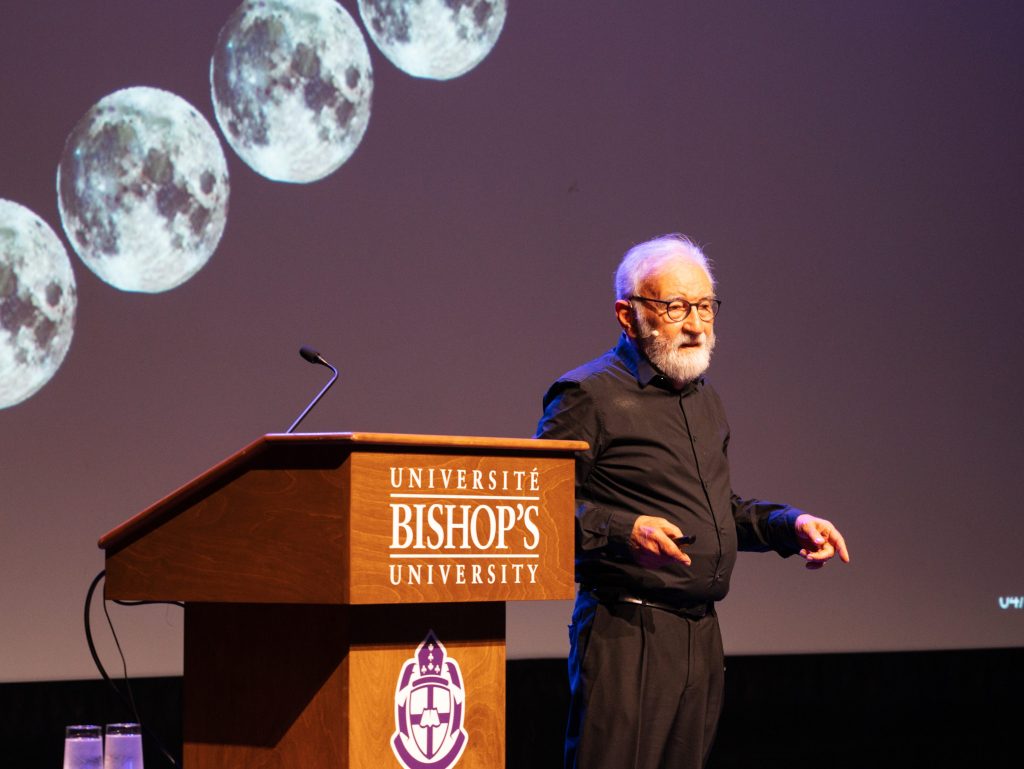By Jillian French – Contributor
On Wednesday, Mar. 27, students gathered in the Library Learning Commons for the official launch of phase two of the SRC’s Menstrual Equity Project (MEP). This phase will introduce sustainable and reusable menstrual products to the student population, following phase one’s introduction of free disposable menstrual products in bathrooms. Free menstrual pads, cups and discs are now available at six locations: the Health Clinic, the SRC Offices, the Indigenous Student Support Centre, the International Students Office, Student Services and the Community Cupboard. During the town hall, Olivia Woods – project founder and SRC vice-president student life – and fellow MEP committee members outlined accessibility and distribution of reusable and sustainable products.

The term “period poverty”, describing various accessibility barriers to menstrual products, is a more common university experience than some may think: Woods highlighted that 34 per cent of Canadians will experience period poverty and described how she’s heard countless stories of students forced to choose between buying groceries and period products or leaving class due to product inaccessibility. The MEP, the “brainchild” of Woods, launched phase one in December 2023, providing free disposable menstrual products in campus bathrooms, plus coupons for purchases. This project has highlighted the pressing need for continued accessibility: Woods noted that restocked products often run out within two days. Recently, disposable products have been added to male bathrooms on campus to increase accessibility for trans, intersex, genderqueer and nonbinary students.
In addition to financial costs, menstrual products can present a significant environmental burden. Disposable and overwhelmingly non-biodegradable products create 200,000 tons worth of plastic waste a year. While re-usable products offer solutions, their high short-term cost often bumps them to a second-choice product. During the town-hall gathering, Woods announced that the SRC has purchased 985 reusable products. Future plans of the MEP are to introduce sustainable single use products in the baskets across campus, such as tampons with applicators made from cane sugar.

Woods invited MEP committee members Roser Rise and Kassandre Brouillard to cover the details of reusable pads, menstrual cups and discs.
Maxi-size reusable pads are available. They may last up to ten years and must be changed every six to eight hours. While they may be more tedious to wash, they are more absorbent than disposable pads and can replace 238 single-use pads.
Students can access small and regular-sized menstrual cups and discs, with the choice of a soft or rigid material for cups. While the menstrual cup is inserted into the vaginal canal, the disc is inserted higher up and rests below the cervix. Cups and discs do not need to be removed as often as tampons, needing to be emptied at least once every 12 hours. When taken care of properly, they may last up to 10 years. They should be sanitized with boiling water or alcohol at the start and end of each menstrual cycle. Rise and Brouillard added that despite common myths, these products are not less hygienic than disposable ones. With the cost barrier eliminated, Woods hopes that students can start considering these options as a sustainable long-term solution to period poverty.
When asked about how students would access these products at the six locations, Woods told The Campus that students must show their ID and fill out a short form explaining their choice of product. As opposed to a grab-and-go, this allows any necessary education on product usage and allows them to track the project data for future improvements. Woods also noted that re-usable products will not replace the access to disposable products.
Antonia Driscoll and Danielle Storey, coordinators for the community cupboard, shared their thoughts on the impact of the MEP. Storey told The Campus that “I have an environmental science background, and I have studied how wasteful single use period products with plastic applicators and packaging can be. By implementing the reusable products, we are lowering carbon emissions, saving our planet and expanding students’ knowledge on the topic of menstruation.”
Driscoll echoed the sentiment, adding that “providing free menstrual products not only alleviates financial stress for students but also promotes inclusivity and accessibility on campus”.
Woods concluded the town hall with hopes of promoting menstrual education across campus. This, she said, may include adding books about menstruation to the library and introducing educational activities. The SRC also noted that students are not alone in choosing the right product: The product company Saalt, for example, has a quiz online to help your decision.
As Woods put it, “It is time to switch the conversation. Menstruation is not shameful, nor should it be used as a tool of oppression. Education about anatomy and biological processes is essential”.
Caption: Roser Rise, Olivia Woods and Kassandre Brouillard at the town hall. 80 students collected reusable products at the Gait afterwards. Photo courtesy of Gabrielle Liu




